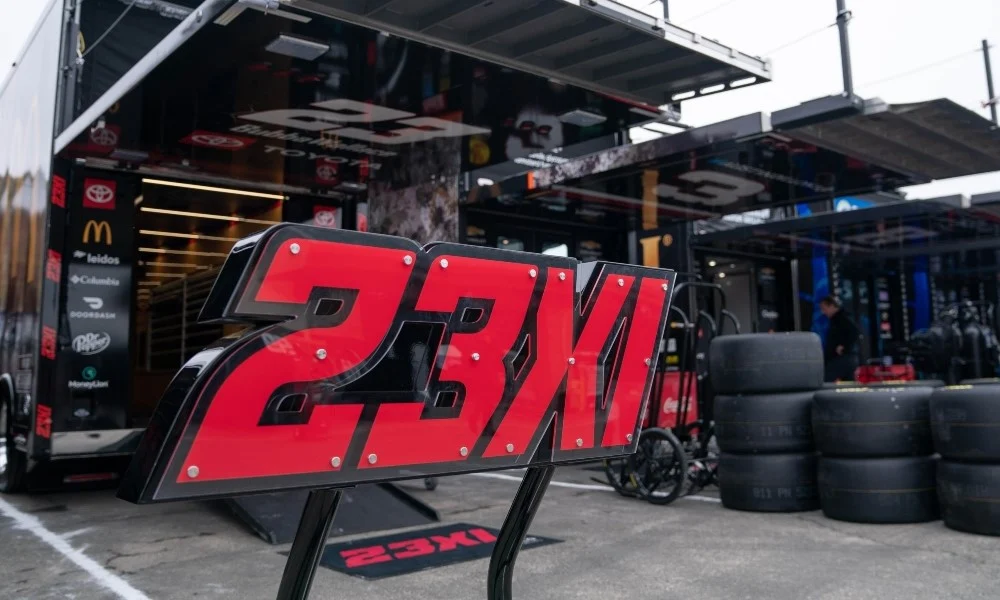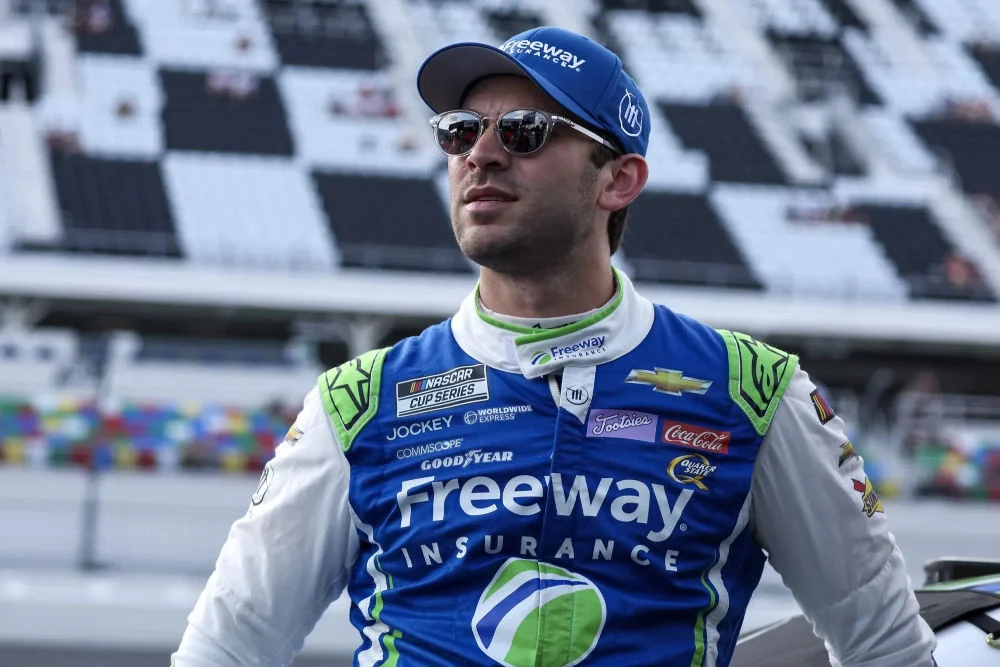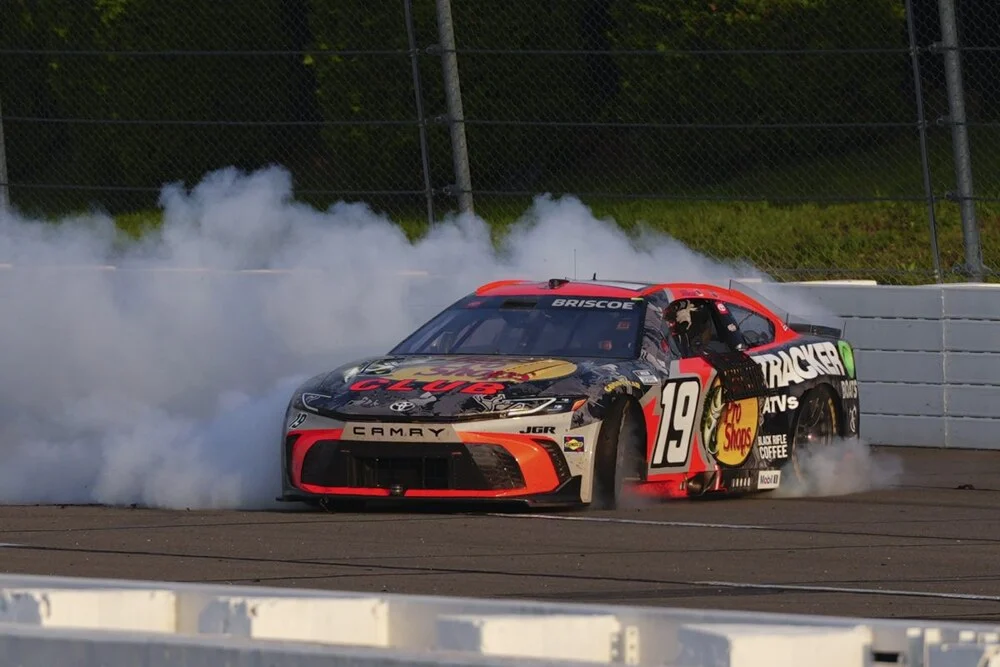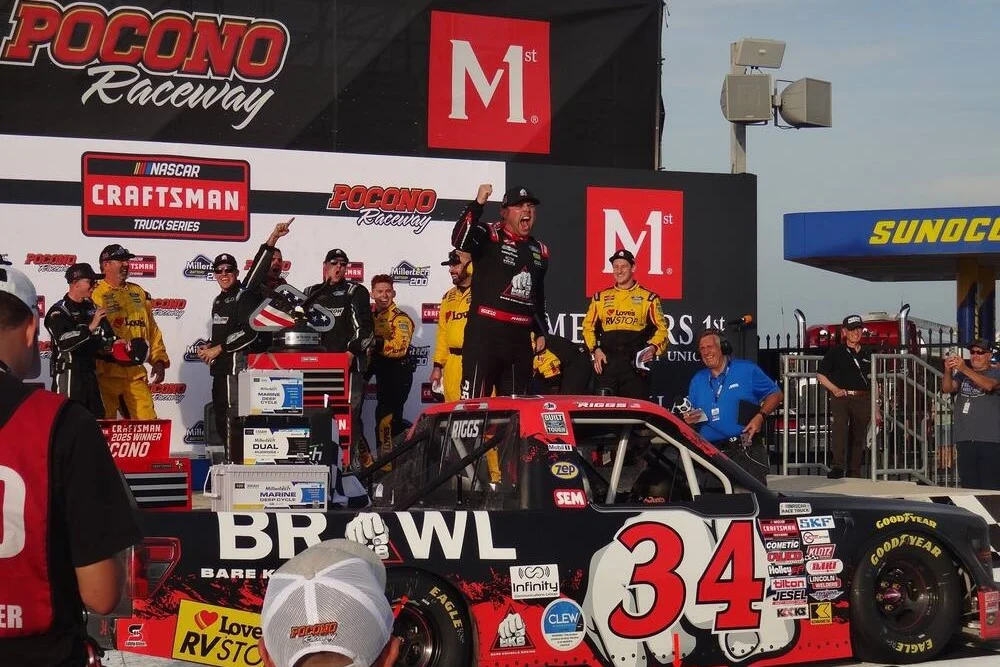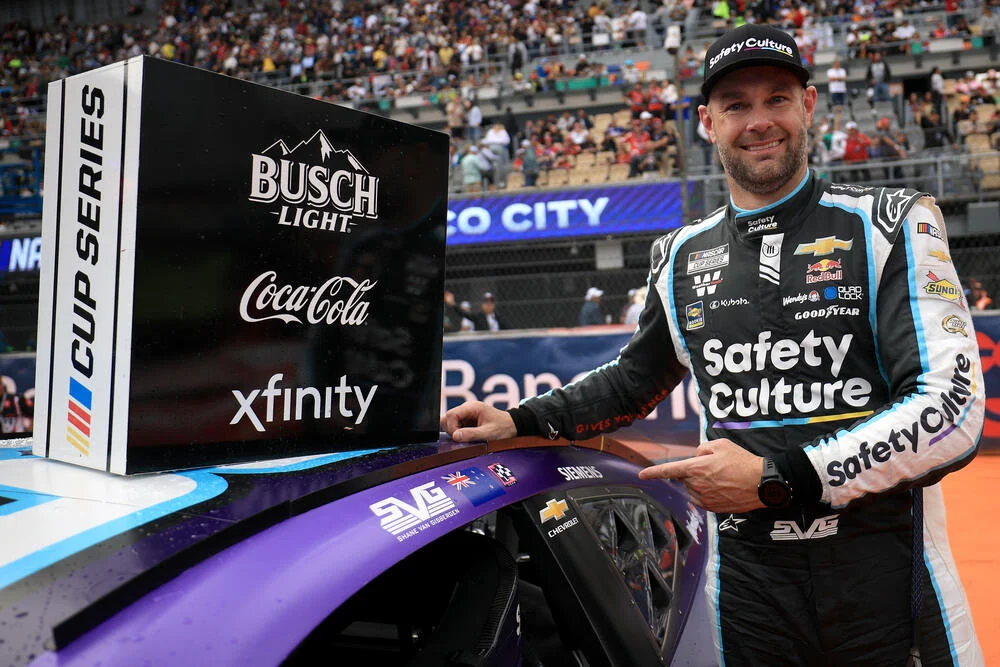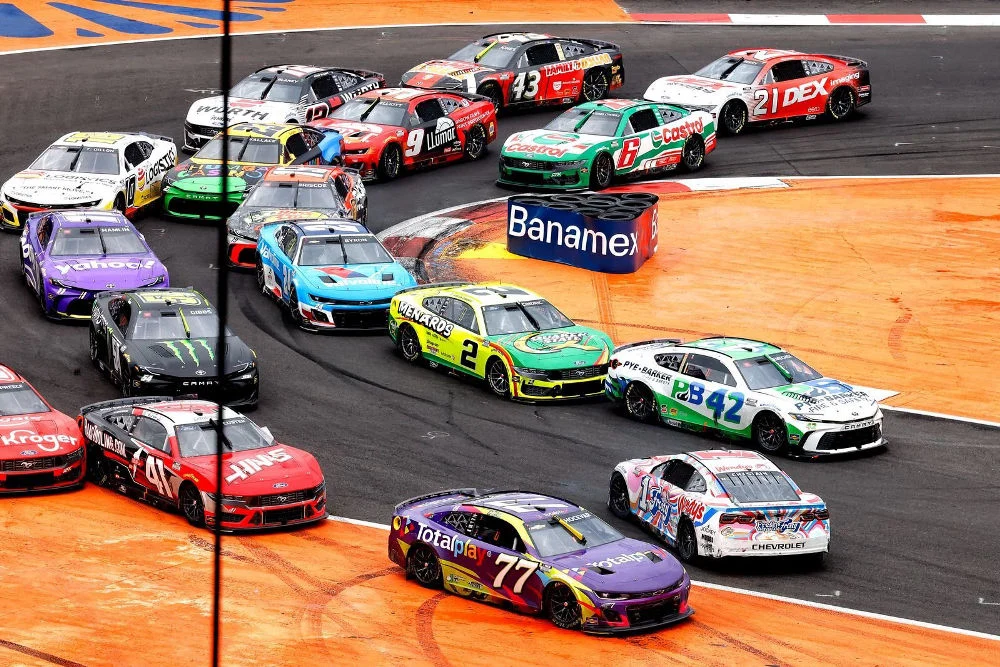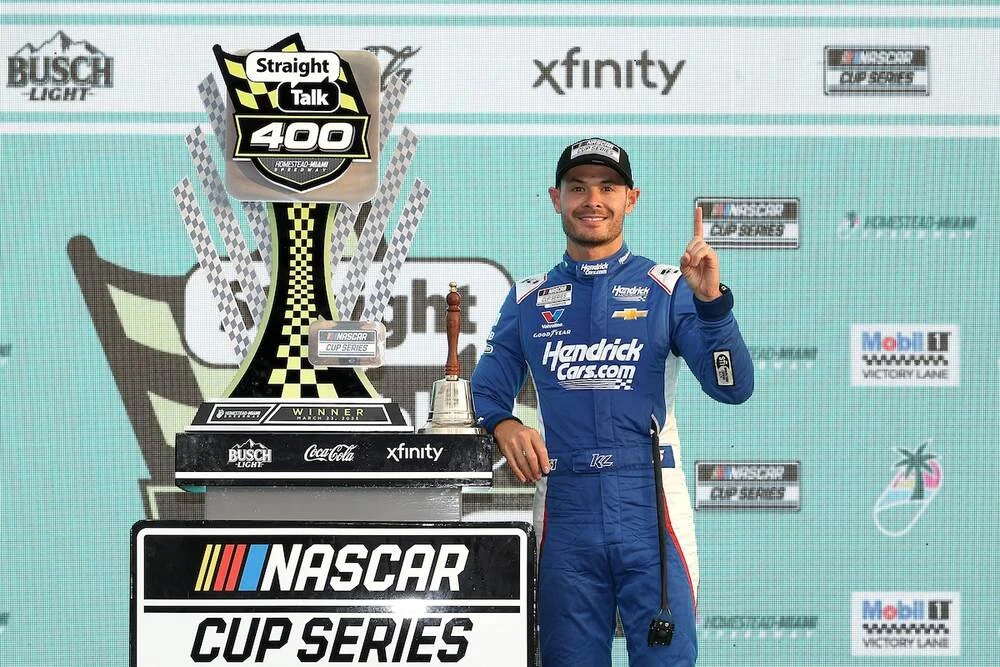The antitrust lawsuit involving NASCAR, 23XI Racing and Front Row Motorsports had its first court hearing as the respective attorneys argued over the preliminary injunction the teams want next season.
The case, which began with a preliminary injunction hearing on November 4, 2024, in Charlotte, North Carolina, centers around allegations that NASCAR’s charter system unfairly restricts competition and autonomy for racing teams.
This legal battle not only highlights the tensions within the sport but also raises critical questions about the future of NASCAR’s governance and its impact on team operations.
At the heart of the antitrust lawsuit is a contention that NASCAR’s charter system operates as a monopolistic franchise model. Co-owned by NBA legend Michael Jordan and Daytona 500 champion Denny Hamlin – 23XI Racing and Front Row Motorsports – led by Bob Jenkins – filed the lawsuit in early October.
They argue that the charter system imposes unreasonable limitations on their ability to compete independently and grow as organizations. The plaintiffs assert that NASCAR’s control over team operations and revenue-sharing mechanisms effectively stifles competition, leading them to label NASCAR as “monopolistic bullies.”
The legal proceedings commenced with both parties presenting their arguments before U.S. District Judge Frank D. Whitney. The teams are seeking a preliminary injunction that would allow them to compete as charter teams while pursuing their antitrust claims against NASCAR.
This request is crucial because if granted, it would enable them to avoid operating as “open teams,” which come with significant financial and logistical restrictions that could jeopardize their competitive standing in the upcoming season.
During the hearing, Jeffrey Kessler, the lead attorney representing 23XI Racing and Front Row Motorsports, highlighted the potential irreparable harm his clients would face if they were forced to compete without charters.
He underlined that drivers and sponsors have contractual clauses allowing them to exit if their teams are not chartered, which could lead to a loss of key personnel and resources.
Kessler’s arguments were met with robust counterpoints from NASCAR’s attorney, Christopher Yates, who contended that the teams had previously signed agreements waiving their rights to bring such antitrust claims.
The tension in the courtroom was palpable as both sides engaged in a spirited exchange of legal arguments. Kessler argued that the current charter agreement was distinct from previous agreements and should not preclude his clients from seeking relief through litigation.
He also pointed out that NASCAR’s insistence on enforcing these agreements could lead to severe consequences for his clients’ operational viability.
Yates countered by asserting that NASCAR is not a monopoly due to the existence of multiple racing venues and opportunities outside of its governance structure. He argued that the teams had voluntarily entered into agreements knowing full well the dynamics at play within the racing series.
Furthermore, he claimed that if 23XI Racing and Front Row Motorsports were ultimately successful in court, any financial damages incurred could be compensated post-trial.
The implications of this lawsuit extend beyond just these two teams; they resonate throughout the entire NASCAR landscape. As the sport approaches its championship weekend in Phoenix, where Tyler Reddick from 23XI Racing is among the contenders for the title, this legal battle looms large over team operations and strategic planning for next season.
NASCAR has announced plans to limit its field to 32 chartered cars for the upcoming season while allowing up to eight open cars. This decision directly impacts 23XI Racing and Front Row Motorsports, each holding two charters but potentially facing restrictions if they cannot secure additional charters from other teams like Stewart-Haas Racing.
As both sides await Judge Whitney’s decision on whether to grant the preliminary injunction—a ruling expected by November 8—the future of 23XI Racing and Front Row Motorsports hangs in the balance.
If denied, both teams may have to navigate a challenging season as open competitors without the benefits afforded by charters.
READ ALSO: 23XI Racing and Front Row Motorsports Antitrust Lawsuit Against NASCAR: What you need to know

